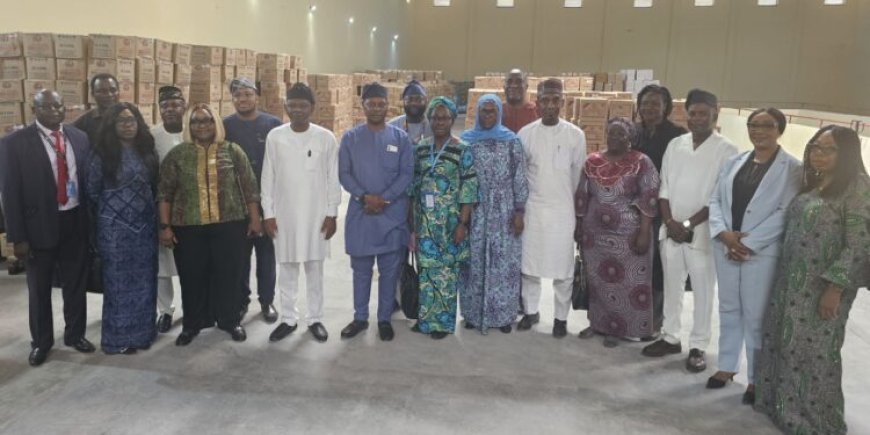FG begins nationwide distribution of N2.9 billion maternal and neonatal health commodities

The Federal Government has commenced the nationwide distribution of free Maternal and Neonatal Health (MNH) commodities worth N2.9 billion to improve maternal and child health outcomes.
At the flag-off ceremony in Abuja on Monday, Dr. Muyi Aina, Executive Director of the National Primary Health Care Development Agency (NPHCDA), said the interventions are targeted at reducing preventable deaths.
He explained that the initiative is part of the government’s commitment to enhancing access to quality healthcare for women and children, while addressing maternal mortality across the country.
He explained that the commodities are designed to deliver high-impact interventions across Primary Health Care facilities in selected states, starting with ten states facing the highest mortality burden.
“The initiative aligns with President Bola Tinubu’s Renewed Hope Agenda of safeguarding the lives of women and children,” Aina stated.
He said the intervention aims to bridge critical healthcare gaps, adding that states are encouraged to sustain and expand the initiative in their operational frameworks.
Targeted states and local government
Aina explained that the programme initially targets 80 Local Government Areas with the highest maternal health risks, while commodities will be provided to mothers and children free of charge.
According to him, distribution is zonal, with 60% allocated to the Northwest, 34% to the Northeast, while North Central and Southeast share the remainder.
He added that the intervention includes strengthening PHC facilities, upgrading infrastructure, and training health workers alongside commodity distribution.
National Coordinator of the Maternal and Newborn Mortality Reduction Innovation and Initiatives (MAMII), Dr Dayo Adeyanju, said the intervention would bolster PHC service delivery and reduce preventable deaths.
Call for state government support
Adeyanju emphasized that the campaign highlights the importance of MNH, fostering collaboration between national, state, and local health authorities, alongside support from development partners.
He applauded the FG’s interventions in maternal and child health, urging state governments to commit resources and integrate MNH programmes into their annual operational plans for sustainability.
“Too many women die needlessly from preventable causes. Even one avoidable death is too many,” Adeyanju declared.
Renewed commitment to reducing mortality
He said the distribution officially marks the government’s renewed commitment to drastically cut maternal and neonatal mortality across Nigeria.
World Health Organisation (WHO) representative, Dr Mary Brantwo, reaffirmed WHO’s support for Nigeria’s healthcare delivery, stressing that maternal health data will now be tracked annually to measure progress.
Representatives of UNICEF, UNFPA, and the Gates Foundation also pledged continued support, commending the government’s efforts towards improving maternal health nationwide.
The distributed items include delivery packs, antenatal drugs, supplements, insecticide-treated mosquito nets, family planning materials, and essential medicines for maternal and neonatal care.
What you should know
Nigeria accounts for about 20% of global maternal deaths, according to WHO.
The maternal mortality ratio is estimated at over 1,000 deaths per 100,000 live births in some regions, among the highest in the world.
Every year, hundreds of thousands of newborns die within the first 28 days of life. Leading causes include birth complications, infections, preterm births, and a lack of skilled health workers during delivery.
Mortality rates are highest in the Northwest and Northeast, where access to skilled health workers, health facilities, and emergency care is lowest. Rural areas face more severe gaps compared to urban centers.
Less than 50% of births in Nigeria are attended by skilled health professionals. Many women still rely on traditional birth attendants or deliver at home due to cost, distance, or cultural barriers.









